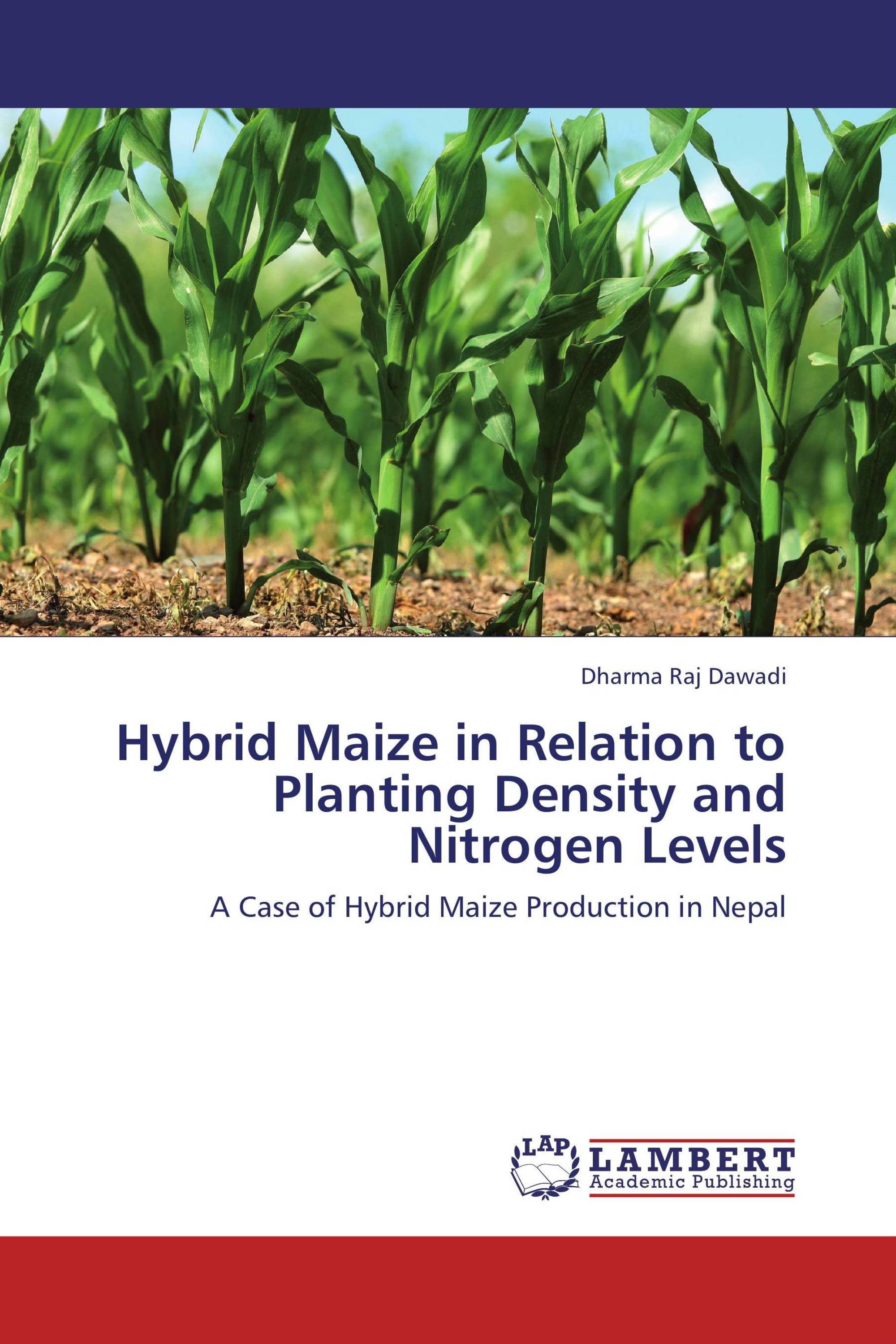Hybrid Maize in Relation to Planting Density and Nitrogen Levels
A Case of Hybrid Maize Production in Nepal
LAP Lambert Academic Publishing ( 2011-08-06 )
€ 49,00
Maize (Zey mays L.) is the second staple food crop after Rice and produced in 3 distinct agro-climatic zones i.e. Terai and inner Terai (less than 900 masl), Mid-Hills (900-1800 masl) and High-Hills (more than 1800 masl) respectively in Nepal. Although, hybrid maize has great prospect to increase the production and productivity, less plant densities & poor nitrogen management are the major yield reducing factors in the developing world (less than 3 t ha-1) as compared to industrialized countries (more than 8 t ha-1). Most of the farmers in developing countries are using higher amount of N-fertilizers haphazardly in hybrid maize which leads to the soil degradation in near future. Because of less information regarding nitrogen requirements and planting adjustments for hybrid maize, there is urgent need to identify its proper production practices & management technology. Therefore, this work was carried out to determine the optimum densities and nitrogen levels for hybrid maize during winter season with reference to its growth, yield and yield attributes. This book is greatly useful for researcher, agronomist, development workers, academic and students working in the field of agriculture research and development.
Book Details: |
|
|
ISBN-13: |
978-3-8454-2051-6 |
|
ISBN-10: |
3845420510 |
|
EAN: |
9783845420516 |
|
Book language: |
English |
|
By (author) : |
Dharma Raj Dawadi |
|
Number of pages: |
116 |
|
Published on: |
2011-08-06 |
|
Category: |
Agriculture, horticulture, forestry, fishery, nutrition |




